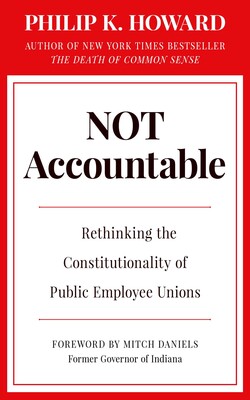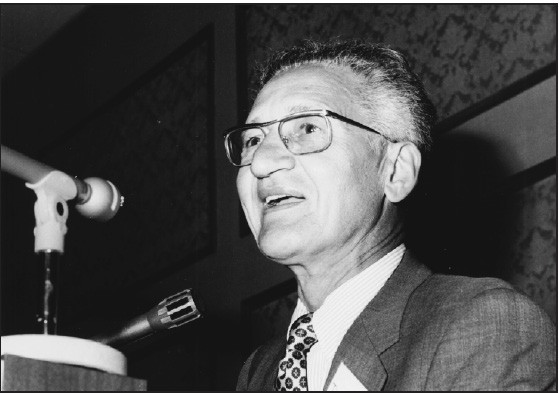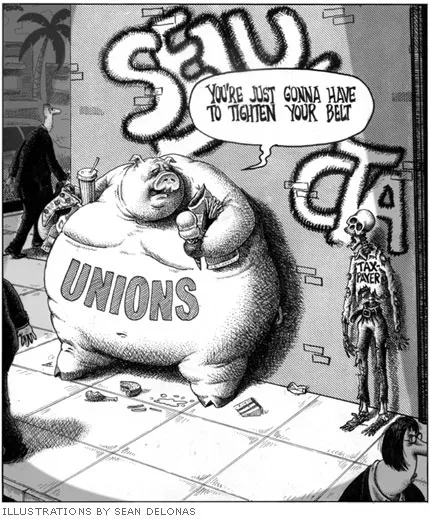Ending the Stranglehold of Public Employee Unions
A popular nonpartisan author revives a forgotten body of constitutional objections to “collective bargaining” by public servants. Will Americans listen this time?
This essay first appeared in Law & Liberty, on January 23, 2023 (here). Thanks to Power Line, Instapundit (here), Real Clear Markets (here), and Real Clear Policy (here)!
The threat of faction—a “mortal disease,” James Madison warned in Federalist 10—has plagued popular government since time immemorial. The eternal desire to improve one’s economic position at the expense of others, without the benefit of consensual exchange, has long tempted mankind into (again, using Madison’s words) “mutual animosities” that eventually found voice in Karl Marx’s toxic class consciousness. In the pre-industrial era, the “dangerous vice” of rent-seeking often consisted of debtors seeking to avoid their repayment obligations through the use of worthless paper money. During the 20th century, the New Deal institutionalized economic warfare between employers (capital) and employees (labor) in the guise of collective bargaining.

In the 1960s, the private-sector model of unionization was imprudently extended to government employees, and in the ensuing decades—coinciding with the meteoric growth of local, state, and federal employment–public employee unions have become one of the most powerful factions in America. James Madison would be astonished and chagrined. The number of unionized government employees now rivals that of their private sector counterparts, forming a special interest group that in many cases controls the dynamics of representative self-government. Unions representing government workers plunder public treasuries, hamstring elected officials, hinder efficiency and reform, and aggressively lobby to benefit the narrow interests of their members over those of the taxpaying public.
The baleful effects of public-sector unionism are particularly evident in the field of K-12 education, where unionized teachers dictate a self-serving agenda. In America’s major cities, government employee unions such as SEIU and AFSCME have replaced Boss Tweed as political power brokers.
Yet, despite the dysfunction resulting from the indefensible extension of collective bargaining to government workers—something that both FDR and George Meany opposed—the topic of public-sector unionism has largely been ignored by the legal academy, as if self-interested public employees tilting the playing field of democracy in their favor is no different than the influence of K Street lobbyists or climate change activists. The Supreme Court’s 2018 decision in Janus v. AFSCME drew fresh attention to the subject of public-sector unionism, but the focus was generally limited to agency fees and compelled speech. Unlike, say, the administrative state or campaign finance regulation, there is a dearth of current legal scholarship on public-sector unionism.

Into that vacuum steps well-respected lawyer and veteran public policy analyst Philip K. Howard in his latest book, Not Accountable: Rethinking the Constitutionality of Public Employee Unions. Howard, Chair of the nonpartisan reform group Common Good, is a serial best-selling author with a knack for explaining complex problems in simple terms and identifying common sense solutions. In Not Accountable, Howard boldly takes on the juggernaut of public-sector unions, and concludes that collective bargaining by government workers is an unconstitutional subversion of sovereign power.
Not Accountable explains the problem in a nutshell:
Union power in government happened almost by accident in the 1960s, ostensibly to give public unions the same bargaining rights as trade unions. But government bargaining is not about dividing profits, but making political choices about public priorities. Moreover, the political nature of decision-making allowed unions to provide campaign support to friendly officials. Public bargaining became collusive. The unions brag about it: “We elect our own bosses.”
Sitting on both sides of the bargaining table has allowed public unions to turn the democratic hierarchy upside down. Elected officials answer to public employees. Basic tools of good government have been eliminated. There’s no accountability, detailed union entitlements make government largely unmanageable and unaffordable, and public policies are driven by what is good for public employees, not what is good for the public. Public unions keep it that way by brute political force—harnessing the huge cohort of public employees into a political force dedicated to preventing the reform of government.
This critique echoes the work of public-sector union critics such as Daniel DiSalvo, Manhattan Institute senior fellow, CUNY professor, and author of Government against Itself: Public Union Power and Its Consequences (2015). The only solution, Howard argues, is to declare public-sector collective bargaining unconstitutional: “America’s republican form of government requires an executive branch that is empowered to implement public policies, not one shackled to union controls. Public employees have a fiduciary duty to serve the public and should not be allowed to organize politically to harm the public.”
Not Accountable is not a dense treatise or a legal brief. In 200 pages of text, including a Foreword by Mitch Daniels, former Governor of Indiana and President of Purdue University, Howard ably distills the issues into a five-point indictment. He argues that public employee unions have:
- Severed the links of accountability;
- Rendered government substantially unmanageable with detailed rules and veto powers;
- Made government unaffordable with opaque benefit packages and compensation manipulations;
- Changed public policies to the harm of the public good; and,
- Entrenched these abuses, and made reform practically impossible, through organized political power.
Howard elaborates on each of these points in a series of concise, elegant chapters, with anecdotes drawn from current events, references to classical political theory, and supporting end notes for readers wishing to dig deeper. For the most part, a 30,000-foot overview is enough to convince the reader that we face a serious problem—loss of sovereignty coupled with what Howard aptly calls “bureaucratic kleptocracy” via a “union spoils system.” The more difficult issue is crafting a solution. Political reform is stymied by unions’ pervasive rent-seeking and institutional capture of state and local government.

Howard’s constitutional objections, while–to my mind–compelling, are not particularly original; he mainly cites scholars who made similar arguments decades ago, including the prolific Sylvester Petro (who unsuccessfully argued Abood v. Detroit Board of Education (1977) before the U.S. Supreme Court, only to be posthumously vindicated when the decision was overturned 41 years later in Janus) and Edwin Vieira, Jr. However, the legal case against public-sector unionism (other than Abood, Janus, and similar agency fee challenges) was never fully litigated, has been all-but-forgotten, and unfortunately vanished from the public conversation—until now. Howard has resurrected formidable but neglected legal arguments so that they may, hopefully, gain the overdue airing they deserve.
One of the reasons public-sector unionism has not attracted the attention of many legal scholars is that the subject is governed by a patchwork quilt of state laws and regulations; the federal National Labor Relations Act applies only to private-sector employees. Nationally-prominent scholars tend to be drawn to uniform schemes of law, such as the NLRA. Collective-bargaining rights for federal government employees, first conferred (via Executive Order 10988) by President Kennedy in 1962, were later expanded by Congress in the Civil Service Reform Act of 1978.
Although seldom noticed, government employee unions are a major issue at the federal level. Howard notes that “All told, the executive branch must bargain with a dozen different unions, each focused on specific cohorts. Together 25 percent of federal employees belong to unions, with total coverage somewhat higher.” These unions contribute to the Beltway morass.
Unlike some critics of public-sector unionism, Howard does not overlook congressionally-mandated collective bargaining by federal government employees, which he contends usurps the executive branch’s authority under Article II of the Constitution. Moreover, Howard ingeniously argues that the states’ surrender of sovereignty to unions representing government employees violates the Guarantee Clause of Article IV, which guarantees “to every State in this Union a Republican Form of Government.” Stripping elected officials of their authority, and conferring it instead on self-interested representatives of government employees, robs the voters (“we the people”) of control over state and local government. The Founders would surely object to a collective-bargaining scheme that structurally empowered union officials at the expense of governors, mayors, and other public executives. Therefore, Howard maintains that the issue should not be deemed a non-justiciable “political question.”
Whether these—and other–constitutional objections to public-sector unionism will find a sympathetic hearing in court remains to be seen, but this much is clear: Absent a constitutional challenge, the dysfunctional status quo will continue or even worsen. Howard ends Not Accountable with these words:
No one elected unions to co-run American government. No democratic principle gave legislators and other officials the right to surrender governing powers to unions. No ethical value allows public employees, having taken an oath to protect the public, to organize politically to harm the public. Democracy under union restraints can’t work as the framers intended. That’s why union controls on the operating machinery of government should be ruled unconstitutional.
Judging from the enormous impact of Howard’s numerous prior books, including the critically-acclaimed national bestseller The Death of Common Sense (1995), and The Collapse of the Common Good (2002), Not Accountable will be widely read and find a large and receptive audience on both sides of the partisan aisle. (His 2010 Ted Talk entitled “Four ways to fix a broken legal system” has been viewed over 770,000 times.)
Howard’s thoughtful perspective and well-deserved reputation for dispensing non-wonkish common sense make it likely that his message and proposed reforms will not be ignored. A half-century ago, when America began the failed experiment of public-sector unionism, a small group of perceptive scholars predicted doom, in heavily-footnoted jeremiads that were largely ignored. It turns out they were prophetically correct. One hopes that Philip Howard’s Not Accountable will motivate Americans to pay closer attention and heed his sensible recommendations.
It is not often that public policy disasters offer a second chance at correction. Getting it wrong a second time would be unpardonable—and tragic.
































